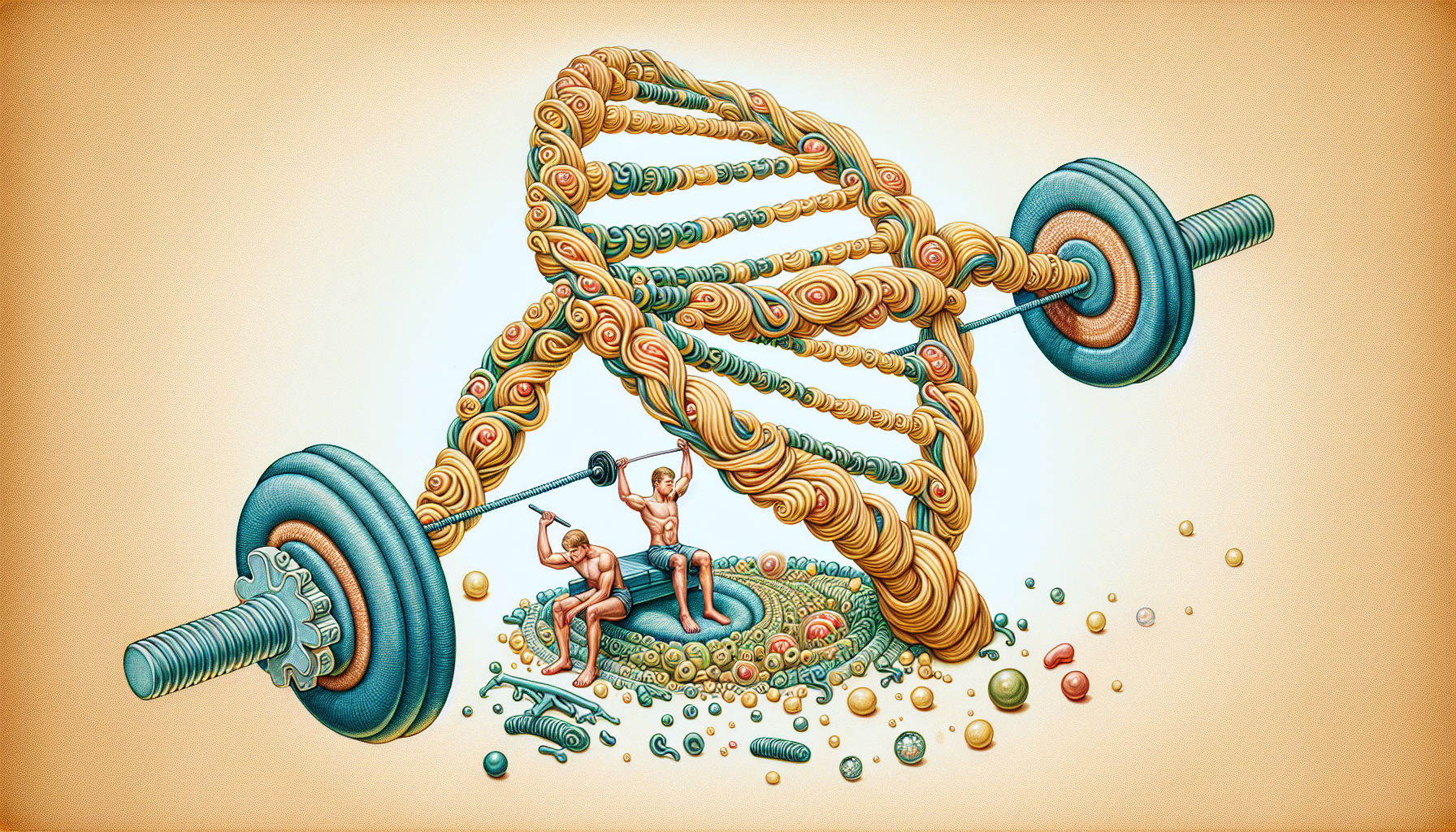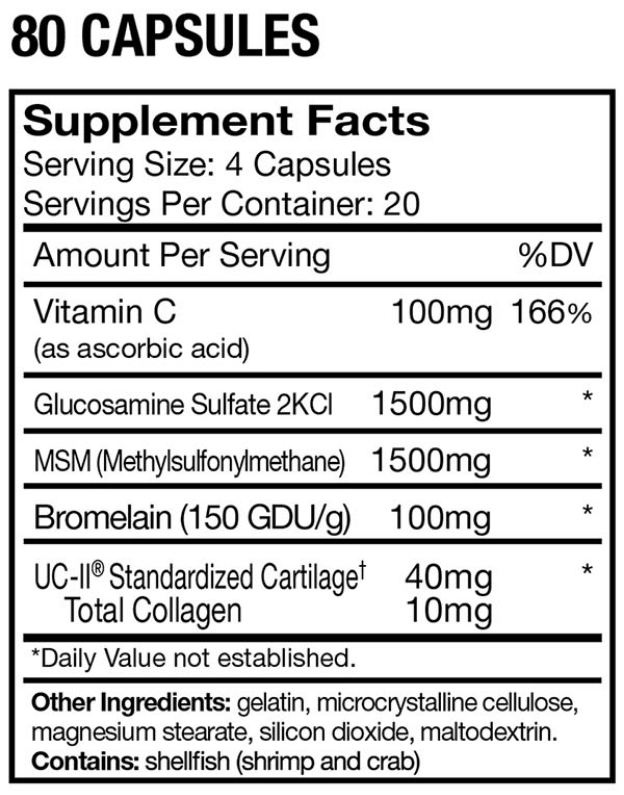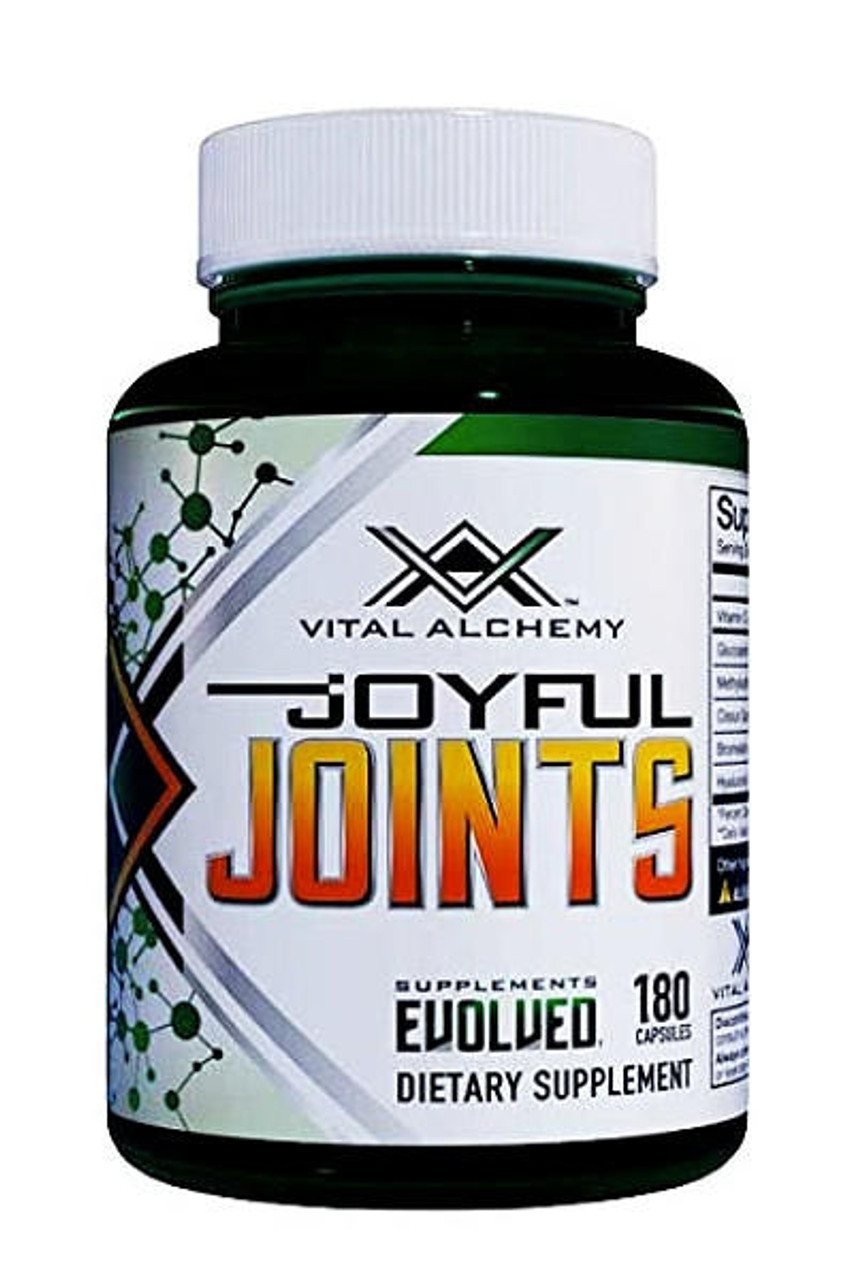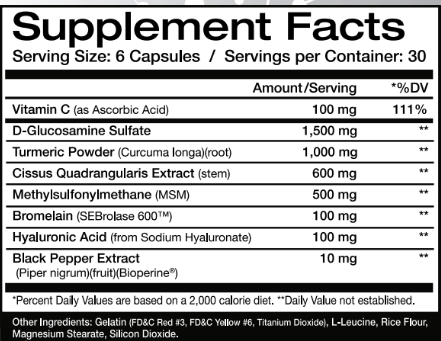Can You Take Too Much Collagen? | What You Need to Know
Posted by Leonard Shemtob on May 14, 2024
Can you take too much collagen?
As collagen supplements become a staple in health routines, knowing the limits is crucial.
This article zeroes in on potential risks of overconsumption, identifying the signs, and guiding toward safe dosages.
Short Summary:
- Consuming more than 20 grams of collagen per day may not offer additional benefits and can result in side effects like bloating, cramping, or allergic reactions.
- Collagen plays a crucial role in supporting skin elasticity, bone health, pain relief in joints, and muscle, with suggested daily intake ranging from 5 to 20 grams tailored to individual needs.
- Proper collagen supplementation requires considering factors such as supplement quality, form, and lifestyle habits, with a balance of diet, lifestyle choices, and consistent intake being essential for optimal benefits.
- Buy the Best Collagen Boosting Supplement and notice the difference in your hair, skin, nails, and joints today!
What is Collagen?
Collagen is a protein found in the human body, making up a significant part of your connective tissues, skin, blood vessels, and bones. It's crucial for maintaining skin health, joint mobility, and overall strength.
But as we age, our body's natural collagen production decreases, which is why many people turn to collagen supplements to keep their bodies in top shape.
- Types of Collagen: There are different types of collagen, but the most common in supplements are types I, II, and III.
- Collagen Peptides: These are smaller, easily digestible forms of collagen found in many supplements.
- Hydrolyzed Collagen Peptides: Specially processed collagen to improve absorption.
- Sources: Common sources include bone/stock broth, collagen peptides, and hydrolyzed collagen from bovine, porcine, or marine sources.
Benefits of Collagen Supplements
Taking collagen supplements can offer a wide range of health benefits, enhancing everything from your skin's elasticity to your joint health.
Here are some of the pros and cons of using a collagen supplement:
Key Benefits
- Promotes Healthier Skin: Collagen helps reduce wrinkles and increase elasticity of skin.
- Improve Joint Health: Reduces pain and improves mobility.
- Boosts Muscle Mass: Helps maintain and increase muscle mass.
- Strengthens Bones: Improve bone density.
- Promotes Heart Health: Supports the structure of blood vessels.
- Enhances Wound Healing: Accelerates the healing process and aiding in repair.
Potential Side Effects
- Digestive Issues: Some people may experience bloating or indigestion.
- Allergic Reactions: Rare but possible, especially if allergic to the source of collagen.
- Excess Calcium: High doses can lead to hypercalcemia, especially with marine collagen.
Understanding Collagen Overconsumption
While consuming collagen supplements is generally safe, there’s a fine line between what’s beneficial and what could be excessive.
Understanding how much collagen is too much is just as important as recognizing its health benefits.
Even though collagen is safe in higher doses, consuming more than 20 grams per day may not yield additional benefits and could lead to a quicker depletion of your supplement supply.
Recognizing the Signs of Excess Intake
When indulging in the pursuit of wellness, how do you know if you take too much collagen? Your body might signal overconsumption through:
- bloating
- cramping
- an unsettled stomach
- headaches
- fatigue that can dampen your spirits.
While rare, allergic reactions to collagen can occur, particularly for those sensitive to its various sources like fish or bovine.
The Role of Collagen in the Body

Collagen proteins are much more than just a buzzword in the beauty industry; they’re a vital component of connective tissue that lends strength and structure to our bodies.
Collagen aids blood clotting, supports the regeneration of skin cells, and even offers a protective cover for our organs.
With its remarkable ability to relieve joint pain and improve bone mineral density, collagen’s role in the body is undeniably extensive.
Collagen's Contribution to Improved Skin Elasticity & Bone Health
Imagine a protein that could turn back the clock on your skin and bones. That’s the power of taking collagen.
As we age, our natural production of collagen wanes, leading to the dreaded signs of aging. Thankfully, taking collagen supplements can combat these effects by reducing wrinkles, improving skin health and hydration, and enhancing firmness.
Beyond skin, collagen also supports the longevity of bone health and connective tissues, with Type II collagen being particularly beneficial for joint health.
Impact on Muscle and Body Composition
But collagen’s benefits don’t stop at skin and bones; it’s also a champion for muscle mass. By aiding in fat loss and increasing strength, collagen supplements can play a role in improving your overall body composition.
Higher doses, like 15 grams per day, may even promote a feeling of fullness, which can be a boon for those looking to maintain a healthy weight.
Tips for Optimal Collagen Intake
Diving into the world of collagen supplements, you might wonder, “How much collagen should I take?”
While the optimal intake can range from 5 to 20 grams per day, it’s important to remember that these figures should be tailored to individual needs and health goals.
Importance of Following Supplement Guidelines
Collagen supplementation should be approached with care. Prolonged or heavy usage might strain the kidneys due to their role in processing the byproducts of protein metabolism.
It’s essential to speak with a doctor before adding collagen to your regimen, especially if you’re managing chronic conditions or taking medications.
Adhering to the recommended dosages from healthcare providers and manufacturers is crucial for safe supplementation.
Collagen-Rich Foods and Supplements

While collagen supplements can be a convenient source, combining them with a balanced diet that includes collagen-rich foods can promote healthy collagen production in your body and improve overall health. Certain foods like bone broth and chicken skin naturally provide collagen, while vitamin C-rich foods can promote its production in the body.
A well-rounded diet ensures you receive a broad spectrum of nutrients necessary to support healthy collagen production, collagen synthesis, and general wellness.
Choosing the Best Collagen Supplement
Selecting the best collagen supplement is a pivotal decision on your wellness journey. Factors like the source of the collagen and the types provided can influence the supplement’s effectiveness.
With most collagen supplements on the market, it’s essential to consider these factors before making a choice.
Collagen supplements often contain hydrolyzed collagen, undenatured collagen, and gelatin, each of which offers its own unique benefits. These different types of collagen play various roles in supporting overall health and wellness.
Best Supplements For Natural Collagen Support
Joint and Tissue by Myogenix
Joint and Tissue by Myogenix is perfect for those who want to support their joints and connective tissues while enabling more effective workouts for those focusing on building muscle mass and improving strength.
Key Ingredients:
- Vitamin C
- Glucosamine
- MSM
- Bromelain
- UC-II (10 mg of collagen)
Key Benefits:
- Improves joint flexibility
- Reduces inflammation
- Supports repair and recovery
- Enhances muscle hardness
Joyful Joints by Vital Alchemy
Joyful Joints is a premium supplement designed to support joint health, reduce inflammation, and enhance muscle hardness, allow you to perform at your best.
Key Ingredients:
- Vitamin C
- Glucosamine
- Turmeric Powder
- MSM
- Cissus
- Bromelain
- Hyaluronic Acid
Key Benefits:
- Supports cartilage and joint tissue
- Reduces joint pain and inflammation
- Improves joint mobility and lubrication
- Enhances muscle hardness
Joint Support XT by SNS
Joint Support XT by SNS offers comprehensive joint support, helping you maintain joint health while boosting muscle strength and aiding in faster recovery.
Key Ingredients:
- Glucosamine
- NEM Eggshell Membrane
- Curcumin C3 Complex
- Boswellin
Key Benefits:
- Enhances joint comfort and reduces stiffness
- Helps boost skeletal muscle strength
- Reduces joint inflammation and muscle damage
- Boosts immune response
- Supports joint repair and overall joint health
The Synergy of Lifestyle Factors with Collagen Intake
Lifestyle choices like sun protection and diet play a pivotal role in optimizing your collagen levels. Excessive sun exposure, smoking, and high sugar diets, for instance, can accelerate collagen breakdown.
Conversely, a healthy lifestyle that includes sufficient hydration and stress management can significantly enhance the efficacy of supplementing collagen.
Enhancing Collagen Absorption and Function
To boost collagen absorption and function, incorporating key nutrients like essential amino acids and non-essential amino acids into your diet is crucial.
Glycine is one of the non-essential amino acids that is abundant in collagen and is vital for synthesizing collagen. Offering additional benefits, like aiding in the production of other proteins such as creatine and glutathione.
Avoiding Activities That Damage Collagen
Preserving your body’s collagen requires more than just supplementation; it involves steering clear of harmful activities.
Sun protection is vital, as UV rays can significantly damage collagen fibers. Smoking also impairs blood vessels and can lead to collagen degradation.
Limiting sugars and carbohydrates is also advisable for maintaining healthy skin, as they can accelerate skin aging by affecting collagen’s integrity.
Incorporating Collagen into Your Daily Routine

Incorporating collagen into your daily routine can be a seamless and enjoyable process.
Here are some ways to do it:
- Stir collagen powder into your morning coffee
- Add collagen to oatmeal or yogurt
- Blend collagen into smoothies or shakes
- Mix collagen into soups or sauces
- Bake with collagen by adding it to recipes for cookies, muffins, or pancakes
By finding a method that works for you, you can consistently reap the benefits of this powerful protein.
Consistency is Key
The key to unlocking the full potential of collagen is consistency. Regular intake, often over several weeks, is essential for visible improvements in skin health and joint pain relief.
By making collagen a staple in your daily regime, you ensure that your body’s collagen stores are continuously replenished for sustained health benefits.
To Wrap Things Up
While collagen is a powerhouse protein with a plethora of health benefits, it’s important to consume it wisely. Balancing collagen supplements with a nutritious diet, choosing high-quality products, and leading a lifestyle conducive to collagen preservation can maximize its positive effects.
Let the knowledge you’ve gained here guide you to make informed decisions about collagen, and may your journey towards enhanced health and vitality be as rewarding as it is radiant.
Written and Sponsored by Leonard Shemtob
Leonard Shemtob is President of Strong Supplements and a published author. Leonard has been in the supplement space for over 20 years, specializing in fitness supplements and nutrition. Leonard appears on many podcasts, written over 100 articles about supplements and has studied nutrition, supplementation and bodybuilding.
Leonard's articles have been published in many top publications around the web. Leonard enjoys weight training, playing basketball and yoga, and also enjoys hiking. In his free time he studies and works on improving himself. For more detailed information, visit his official blog.
Collagen FAQs
Related Articles
Learn More About Health & Fitness

- Borumand, M., & Sibilla, S. (2014). Effects of a nutritional supplement containing collagen peptides on skin elasticity, hydration, and wrinkles. Journal of Medicinal Food, 17(6), 645-653.
- Clark, K. L., Sebastianelli, W., Flechsenhar, K. R., Aukermann, D. F., Meza, F., Millard, R. L., ... & Albert, A. (2008). 24-Week study on the use of collagen hydrolysate as a dietary supplement in athletes with activity-related joint pain. Current Medical Research and Opinion, 24(5), 1485-1496.
- Zdzieblik, D., Oesser, S., Gollhofer, A., König, D., & König, D. (2015). Improvement of activity-related knee joint discomfort following supplementation of specific collagen peptides. Applied Physiology, Nutrition, and Metabolism, 40(5), 647-652







